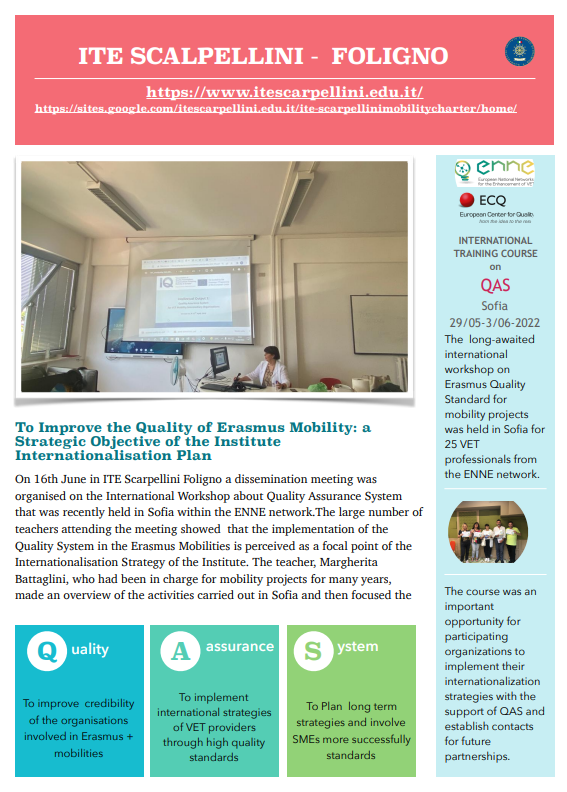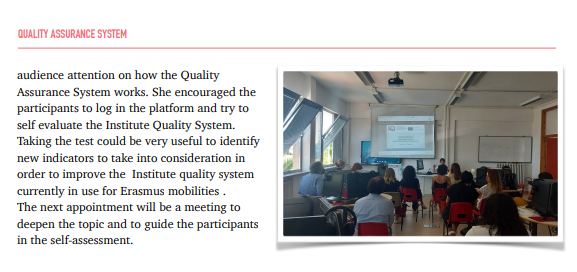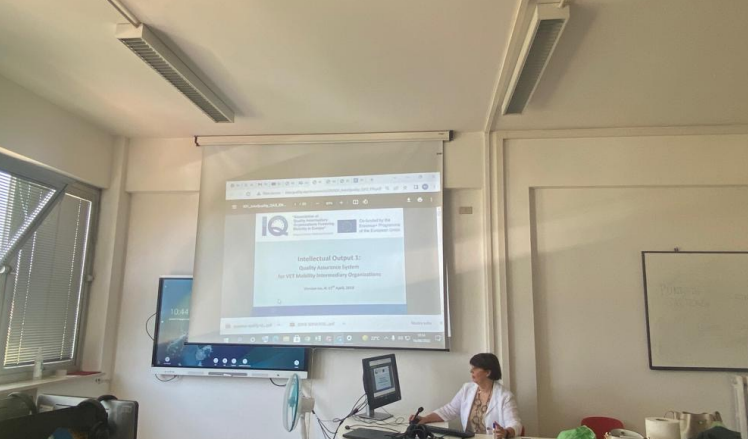
Mois : juin 2022

Job shadowing, the experience of Alessandro hosted by the High School « Escola Secundária de Felgueiras »
- Auteur de l’article Par enneproject
- Date de l’article 21 juin 2022
- Aucun commentaire sur Job shadowing, the experience of Alessandro hosted by the High School « Escola Secundária de Felgueiras »
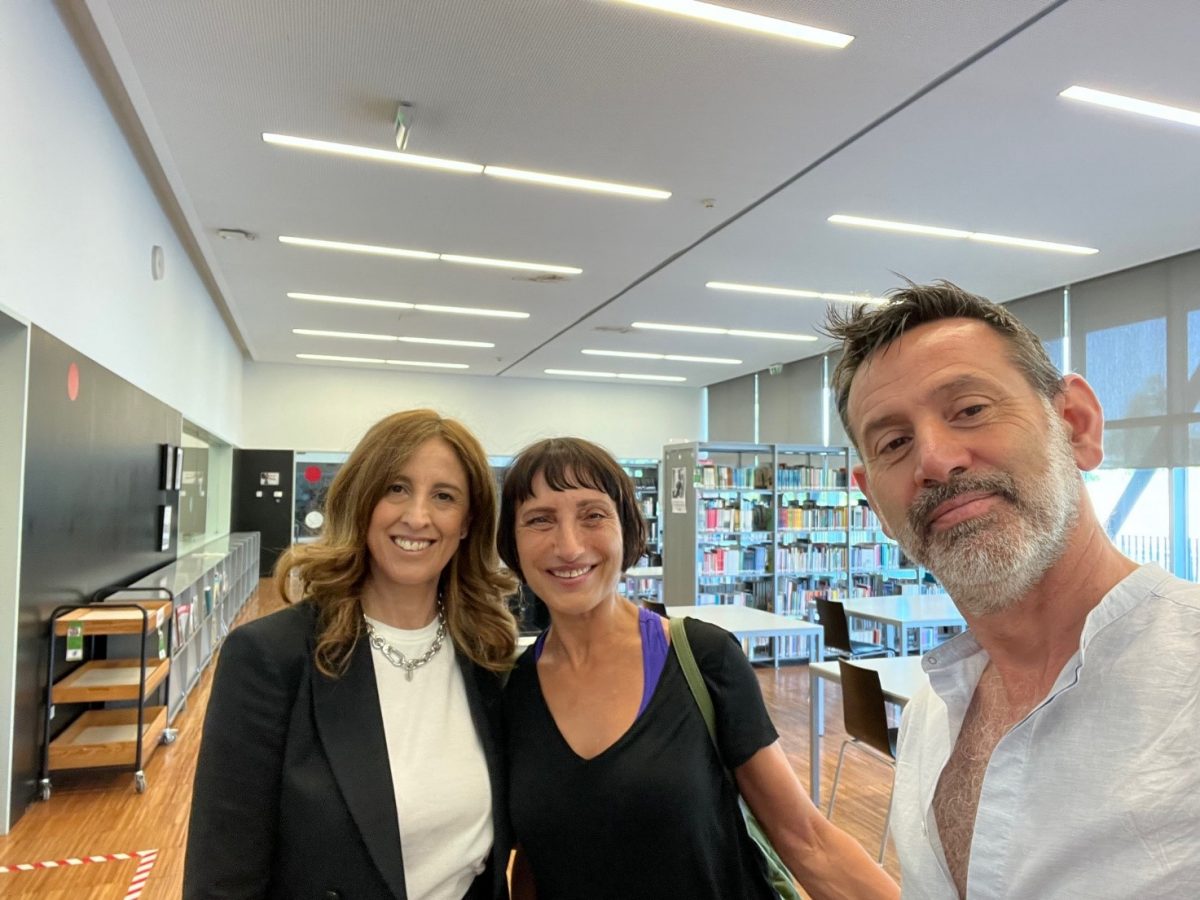
Alessandro Safonte, teacher at High School « Rocco Chinnici » in Italy, hosted by Escola Secundária de Felgueiras in Portugal.
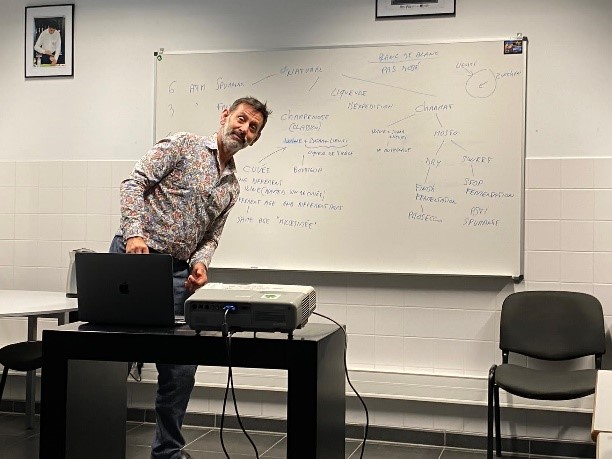
Alessandro’s experience:
« Amazing welcome! My colleague Clarisse Maria Carneiro Bravo de Oliveira Pires Lemos welcomed me like a brother, I felt pampered by everyone. The activities carried out were varied, I had the opportunity to give lectures on topics specific to the hotel sector, from simple notions of service styles in the restaurant room, highlighting the differences between the two countries, to the complex subject of Italian denominations of origin, to the exchange of good practices and comparison of the forms used for internships and use of platforms.
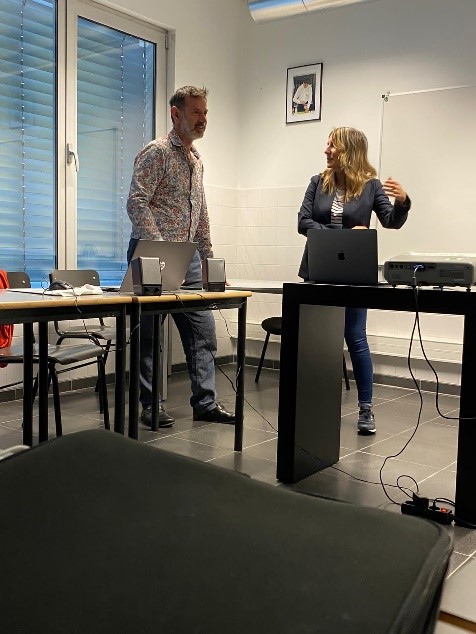
On 12 May, I was invited as a speaker in a debate on school and European citizenship, I was a little embarrassed at first, I do not have a good command of the English language apart from a minimal vocabulary. However, I think it went very well, in the days that followed I was appreciated for the food for thought that I shared with the bystanders, I was perhaps a bit provocative but it is part of my character.
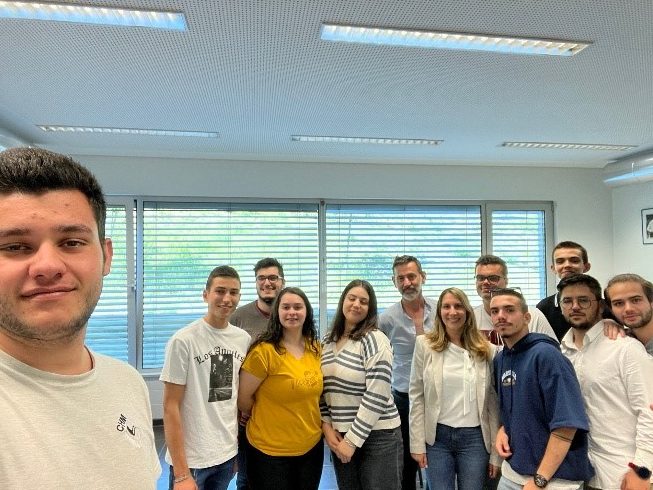
The students were very interested and followed me with passion, they even enjoyed taking my picture. With them, mutual sympathy suddenly sprang up, I must admit that at the moment of saying goodbye I got a little sad. My colleague gave me the opportunity to visit the companies with which they collaborate by hosting their students on internships, I hope that this will start a collaboration in the coming years, I would love to take my students for an experience in Portugal.
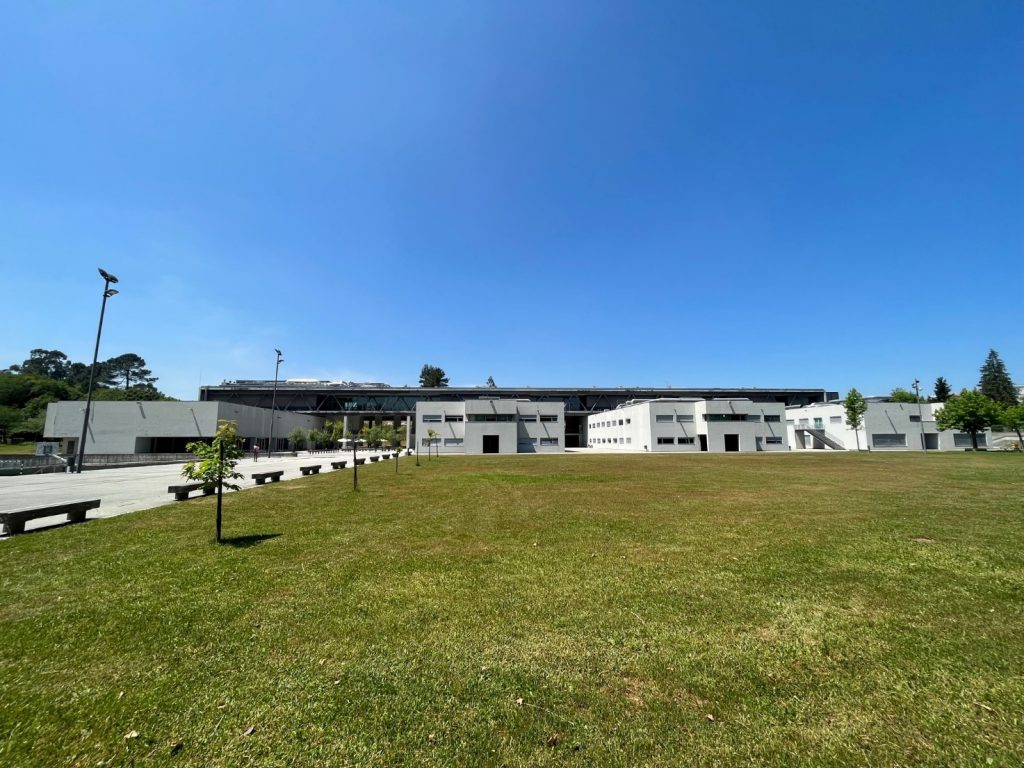
The visits to the main tourist attractions were also very interesting, and not only that, my colleague Sandra Machado gave me a tour of an important home textiles company, which was a wonderful visit ».
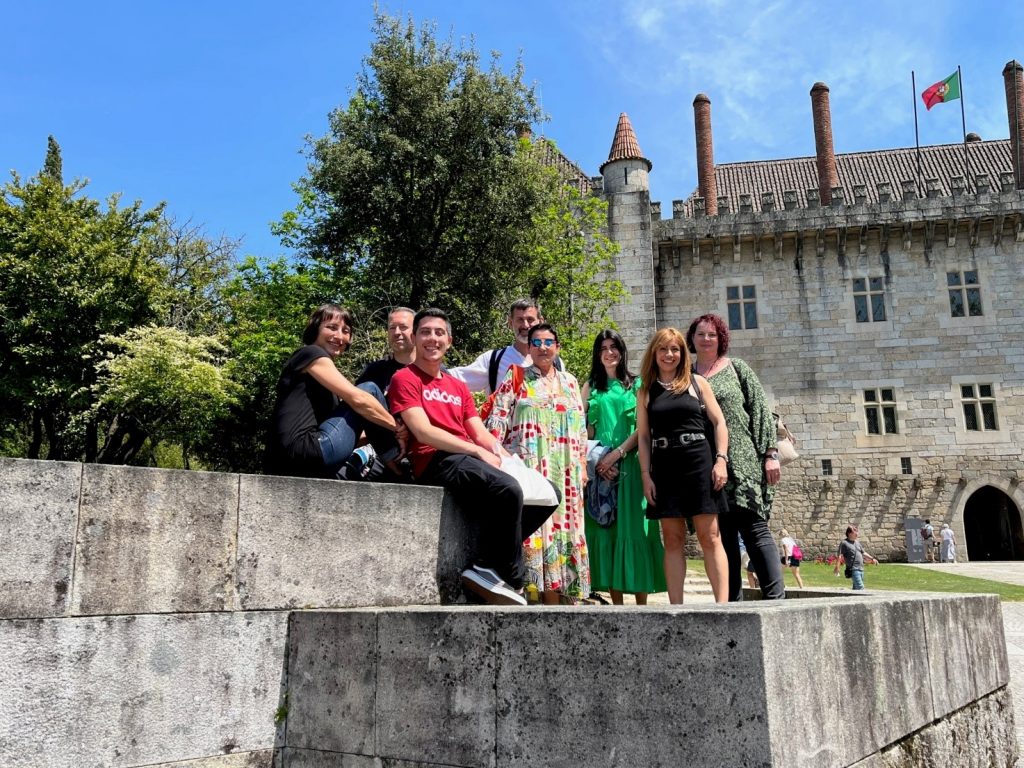
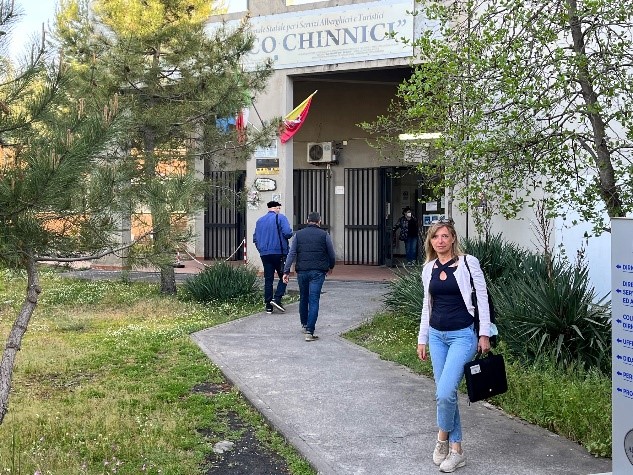
Alessandro Safonte, teacher at the high school « Rocco Chinnici » (Italy) hosted Prof. Regine Vandecandelaere, lecturer c/o the LTI Oedelem (school for science, landscaping, gardening) in Oedelem (Beernem) for her job-shadowing activity from 24 March to 30 March.
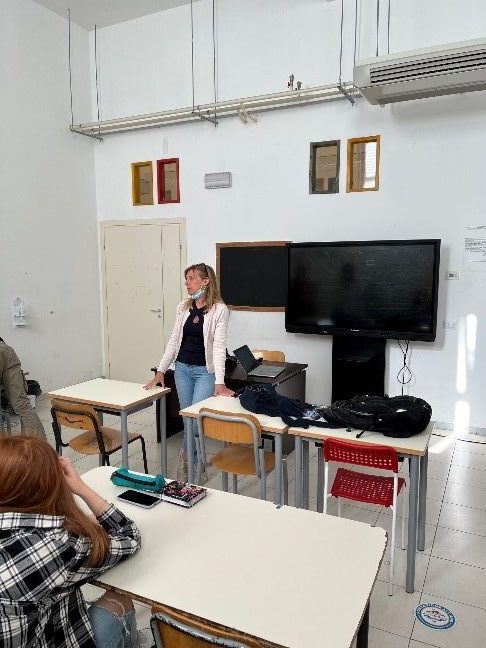
Regine’s experience:
« A very pleasant experience, certainly being on my own I was able to devote myself to her for the whole week, the day started at 7:30 a.m., when I went to pick her up in Catania, to go to our Institute, and start different activities. She took part in my technical-practical lessons in the workshops of the dining room and kitchen and participated in French and English lessons.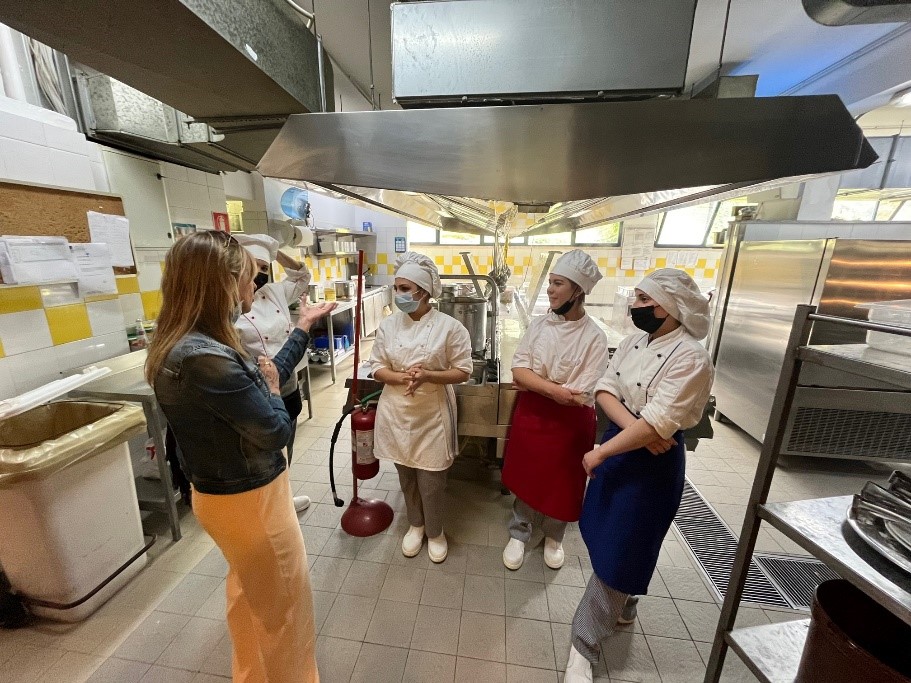
The relationship with other colleagues was very good, at the beginning she didn’t understand the dynamism of our institute and this made her a bit uncomfortable, in fact, then she liked the way we teachers interact with our students, being a professional institute the approach with them is very empathetic.
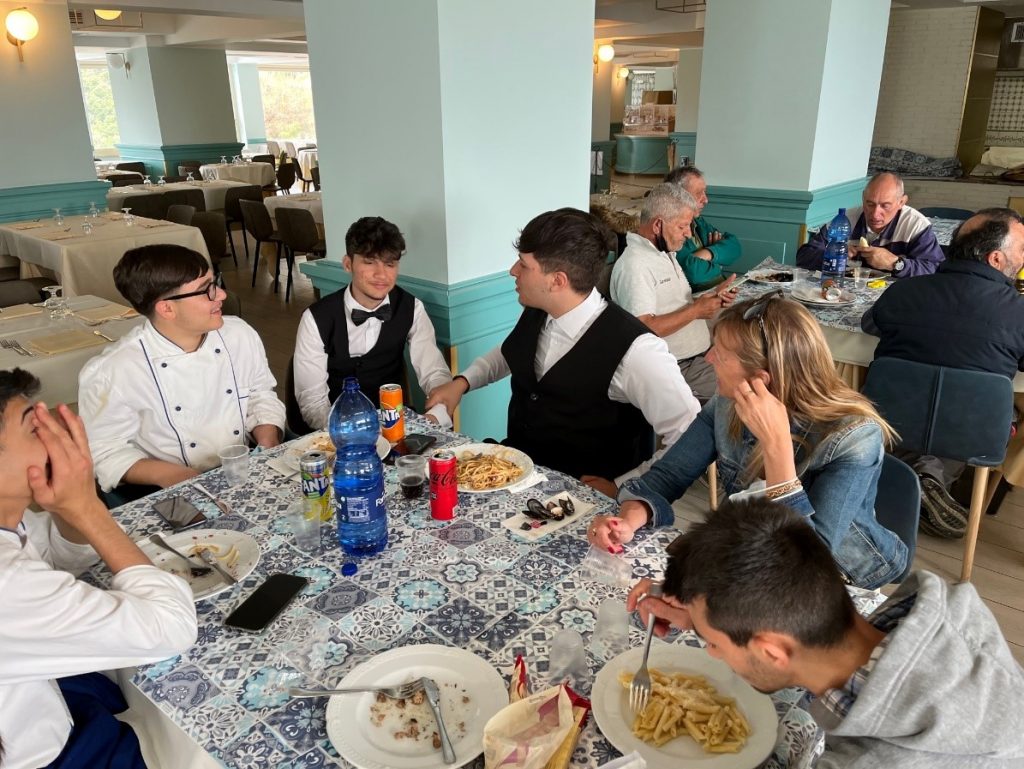
During the week we didn’t limit ourselves to classroom activities but I took the opportunity to have her meet with the students who were doing internships at hotels in Taormina, the focus of the experience was on the management of our students’ internships, we talked a lot about how to organise them and the critical issues that can arise.
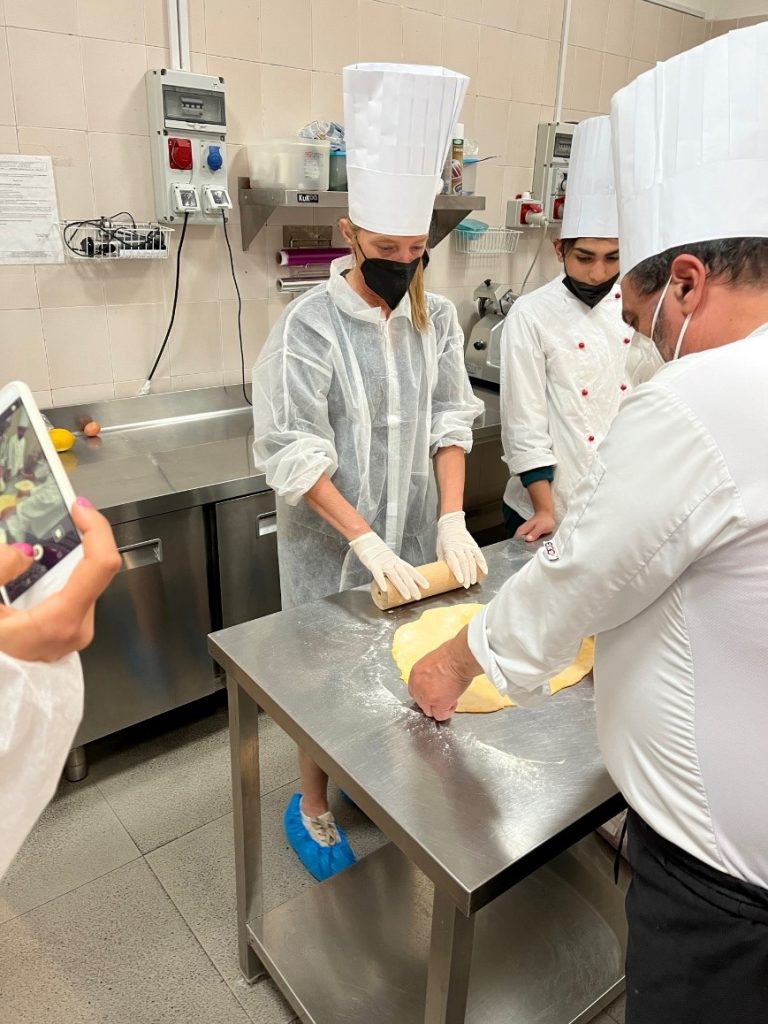
We also compared the documentation we use in the management of internships, and had the opportunity to exchange views with the students and company tutors. There were also visits to the area such as Noto. Vendicari Nature Reserve, Syracuse, Catania, Taormina; the food and wine experiences were also interesting, which I say…. I hope to give the same opportunities to many more teachers next year ».
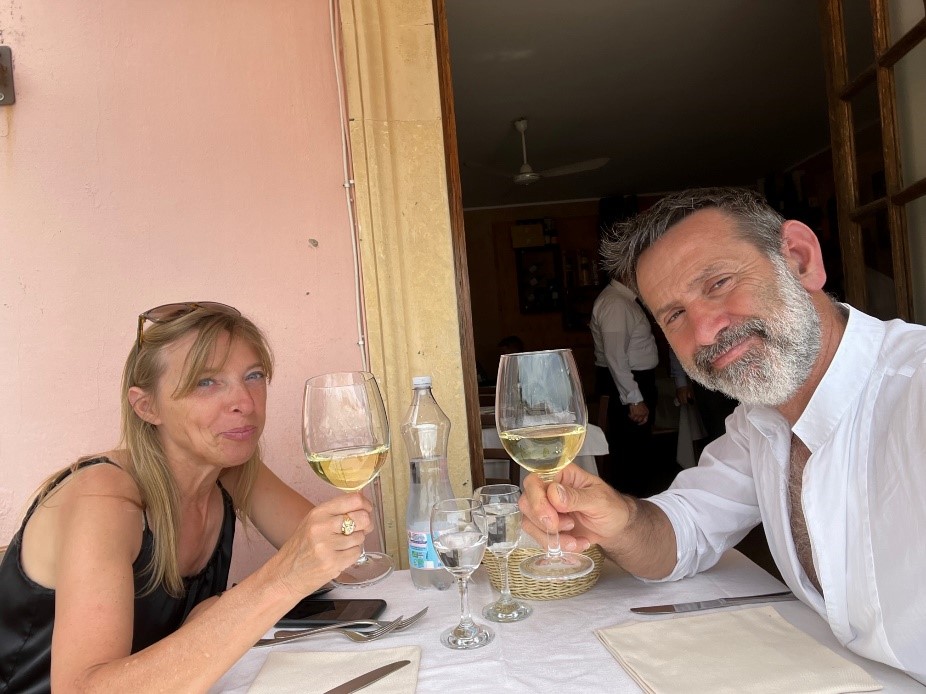
KA2 SUS&DIV – Sustainability and diversity improvement in cooking and catering
- Auteur de l’article Par enneproject
- Date de l’article 17 juin 2022
- Aucun commentaire sur KA2 SUS&DIV – Sustainability and diversity improvement in cooking and catering

The KA2 SUS&DIV project wants to:
- create an inclusive environment in cooking and catering vocational adult training: Diversity is gaining in Europe. The European Commission focuses on the importance of diversity and inclusion in our workplaces and in the society throughout the whole European Union through actions such as Diversity Month. If we want employers who are able to adequately and ethically deal with diversity issues, we have to create an inclusive environment in our education system. In our context we see diversity in an intersectional approach. Intersectionality means that somebody’s social identity is not perceived in terms of just one aspect of it (such as gender, social class, religion, ethnicity, sexuality) but that these aspects together shape somebody’s perceived and experienced social identity. All these different aspects coexist, mutually reinforce each other and decide the unique social location that an individual occupies. The broader social environment also influences the way a person experiences his or her specific social location in society. It is not possible to provide diversity-sensitive teaching and learning without addressing this complex relation between social identities and the organizational and societal context. (Radstake, 2021)
- implement sustainability in cooking and catering vocational adult training: The Farm to Fork Strategy is at the heart of the Green Deal. It addresses comprehensively the challenges of sustainable food systems and recognizes the inextricable links between healthy people, healthy societies and a healthy planet. The strategy is also central to the Commission’s agenda to achieve the United Nations’ Sustainable Development Goals (SDGs). All citizens and operators across value chains, in the EU and elsewhere, should benefit from a just transition, especially in the aftermath of the COVID-19 pandemic and the economic downturn. A shift to a sustainable food system can bring environmental, health and social benefits, offer economic gains and ensure that the recovery from the crisis puts us onto a sustainable path. If we want the Farm to Fork strategy to be successful, the catering and cooking education has to be involved, so the strategy will be adapted in future catering businesses.
KA2 Dementia
- Auteur de l’article Par enneproject
- Date de l’article 17 juin 2022
- Aucun commentaire sur KA2 Dementia

Taking into account the proposal for a Council Recommendation on Vocational Education and Training for Sustainable Competitiveness, Social Equity and Resilience and the updated European Skills Agenda, the Osnabrück Declaration focuses on four key areas for the years 2021 to 2025:
- Resilience and excellence through quality, inclusive and flexible VET
- Creating a new culture for lifelong learning – relevance of continuing education and digitalisation
- Sustainability – a green link to VET
- European education and training area and international vocational education and training
With this project we contribute to these objectives to a greater or lesser extent. Our two focuses within our project are mainly on 1 and 2. Through this project we upscale the digital skills of teachers and trainers in both the formal and non-formal sector so that they are able to develop qualitative interactive online teaching modules that contribute to a culture of lifelong learning. The developed modules focus on the theme of dementia in society. By doing so, we improve the quality of the existing care training programmes in the formal VET and the training programmes in the nonformal sector and adapt them to the increasing demand from society for quality education on this theme. This is necessary in order to detect the condition in people at an early stage and to provide them with high-quality care and support.
On its website, the WHO identifies a lack of awareness and knowledge about dementia, which is widespread in many countries. The partners within this project consortium fully endorse this observation.
The prevalence of dementia is escalating worldwide and knowledge deficits remain a barrier to community inclusiveness and quality care. The need for quality, comprehensive education has been identified as a key priority for global action plans on dementia. In the fight against Alzheimer’s disease, early recognition of this condition is extremely important. The online material we are developing is focused on the one hand on recognising the disorder and experiencing it, and on the other hand on the care that people with dementia need in their day-to-day lives.
At the end of this project, 24 expert teachers/trainers from the formal and non-formal sector will have upgraded their digital skills. Indirectly, there will be more people involved, because the 24 who are directly involved will spread the word within their own organisation.
3 modules will be developed.
A first module will deal with the dementia condition: issues such as What is dementia?, What are the symptoms? Different forms of dementia, Stages of dementia, Observing and understanding changing behaviour, Improving day-to-day functioning of people with dementia, Environmental impact on people with dementia, Dealing with changing behaviour, approaches and communication in dementia will be addressed.
A second module will deal with the necessary care, support and guidance for people with dementia in their home environment and in a care facility.
A final module will be about empowerment; with this module we want to achieve that people with dementia are seen and addressed to their full potential, within the context of this project by their family caregivers and their caregivers but by extension not only in care but also in society. The development of this material will ensure that care training in the formal VET sector and training in the informal sector can respond to the increasing demand for people with prior knowledge of dementia.
Teaching and learning with VR in vet
- Auteur de l’article Par enneproject
- Date de l’article 9 juin 2022
- Aucun commentaire sur Teaching and learning with VR in vet
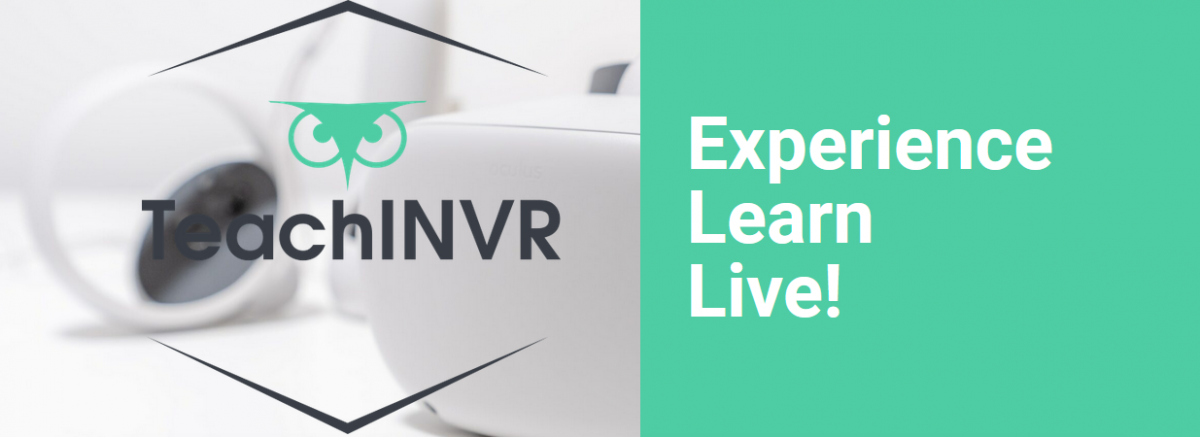
How to use Virtual Reality for VET? The Erasmus+ project TeachINVR will develop a combination of methodology, guide, and « to-do » lists that will include all the necessary information about using VR for teaching and learning as a (VET) teacher or trainer. ENNE partner Wisamar is one of the project partners.
The motivation
The Covid-19 Pandemic has severely impacted education due to the lack of digital competencies of the teachers and trainers. However, the situation provides an excellent opportunity for digitalization and new knowledge as well as capacity building for all VET stakeholders, including learners, providers, teachers, and policymakers.
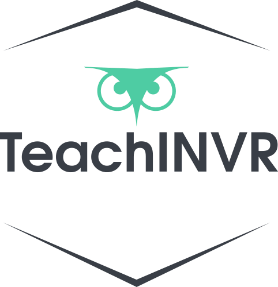
The problem
VET educators, teachers and trainers still face obstacles of the new methods of teaching online and the use of thousands of available tools.
Knowledge gaps in the VET community are substantial and the gap is affecting the learning community as a whole.
The solution
A platform where VET teachers, trainers and educators can find effective tools and where they can exchange knowledge and good practices with peers.
The Objectives of TeachINVR
The project aims to …
- Modernization and Innovation of VET education
- Acquisition of new digital competences
- Use of Virtual Reality in VET education
- Teach the VET educators how to use VR
- Provide access to tools and methodologies
The expected results of TeachINVR
- Innovative VR training/learning methodology for teachers and trainers. An on-boarding material in form of a pdf containing necessary knowledge about the technology itself and the methodology for educators to use it.
- A manual for design, implementation and evaluation of VR in classes. The manual is the application of the methodology into an actual training manual addressed both to educators.
- A VR experience for educators which will provide hands-on training in a simulator aimed. The contents of the VR course will be a practical application of the Methodology and the Manual.
- A guide for teachers which they could use in case they do not have time to go through the materials (Methodology and Manual). It is a sort of a checklist or a To-do list for educators. The guide links back to the previous materials pointing to the chapters where educators can find more detailed information.
For more information see https://teachinvr.eu/
International training course on Quality Assurance System (QAS) in Sofia, Bulgaria
- Auteur de l’article Par enneproject
- Date de l’article 8 juin 2022
- Aucun commentaire sur International training course on Quality Assurance System (QAS) in Sofia, Bulgaria
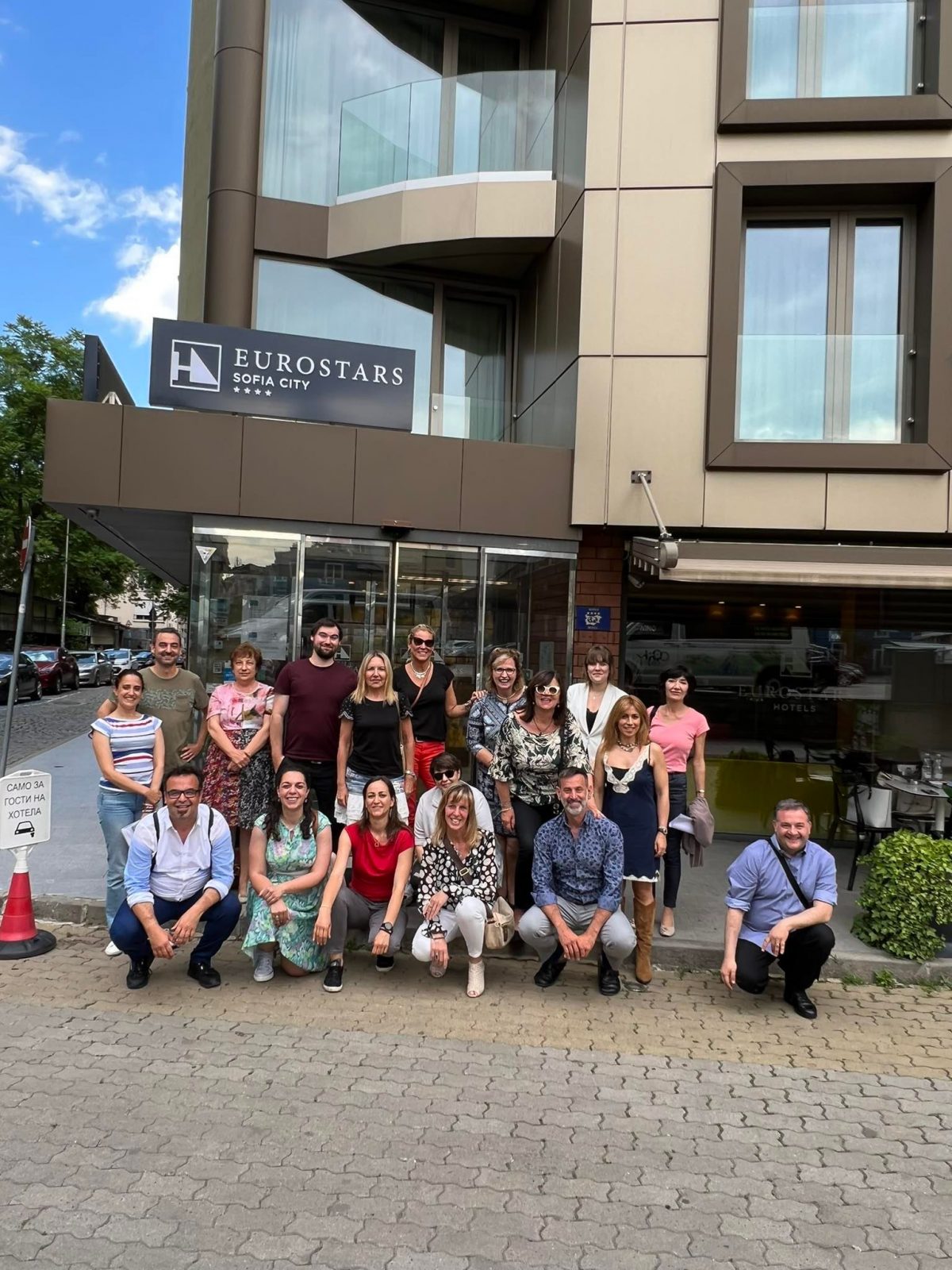
The ENNE project team is happy to announce that the International training course on Quality Assurance System (QAS) was held in Sofia, Bulgaria!
The QAS course was organized by the Bulgarian partner – European Center for Quality Ltd. with the support of all project partners. The training was with total duration of 5 days from 30.05 to 03.06.2022 and was attended by a total of 17 participants from 13 educational institutions from 5 EU countries (Italy, Germany, Bulgaria, Portugal and Belgium).
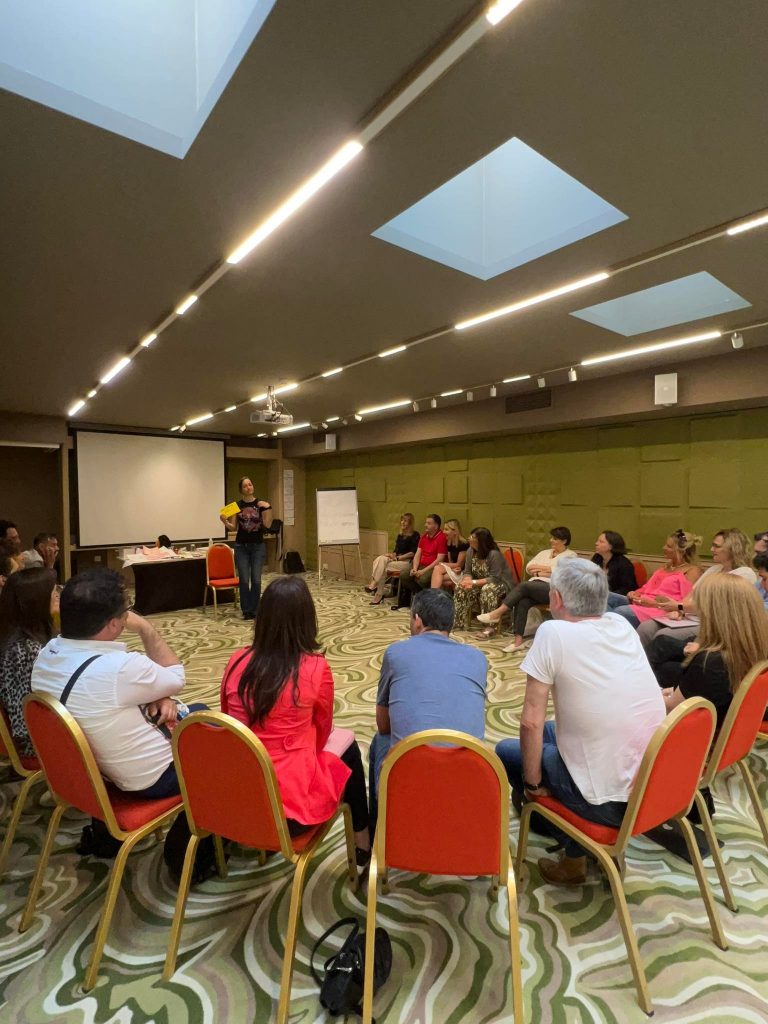
During each of the five days, participants were engaged in interactive activities aimed at:
- enriching their knowledge on international cooperation in VET; quality in VET mobilities, project preparation and implementation, etc.
- promoting networking, team work and exchange of good practices between participants;
- establishing a good foundation for further international cooperation between participants and their organisations;
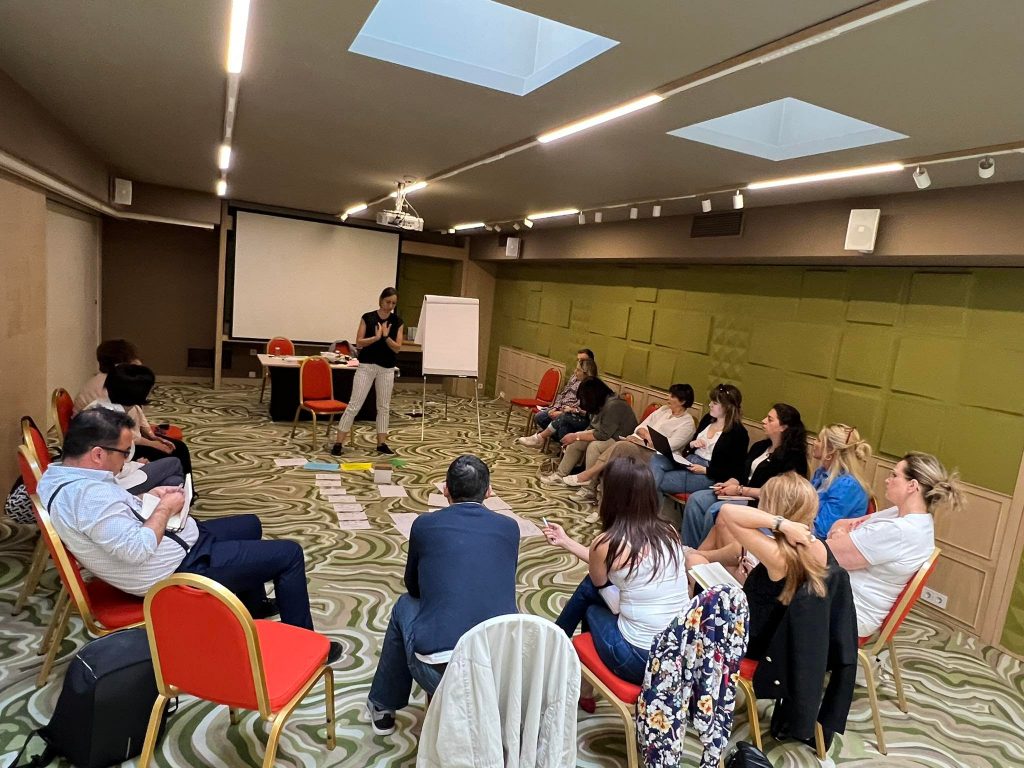
The first day of the training was aimed at creating prerequisites for group forming and was devoted to introduction of all participants and their organisations through various ice-breaking sessions and activities.
On the second day participants’ attention was focused on defining quality from A to Z – both in general and in mobility projects. Later participants were split into 3 teams and were asked to describe what are the roles and responsibilities of hosting and sending organisations as well as participants in mobilities and to present the results. Day 2 ended with presentation of the Quality Assurance System (QAS) and a group reflection session devoted to the applicability of QAS.
On day 3, participants were engaged in a World café workshop devoted to the important aspects of VET mobilities. In this session also experts from the ENNE partner organisations took part. Each partner was covering an important topic within their expertise such as “Accreditation and project preparation”, “Interaction with companies and labour market”, etc. and participants were switching tables based on their interests and most pressing questions.
The afternoon session was devoted on the importance of human relations in VET mobilities during which participants were engaged in a discussion about the most important qualities of mentors in VET mobilities.
Day 4 of the training was focused on introduction to Erasmus Quality Standards
for mobility projects in VET – 2021-2027 and in the afternoon, participants were engaged in designing their own quality framework by defining categories for quality assessment, indicators, source of verification. Afterwards each team presented their framework and the logic behind it.
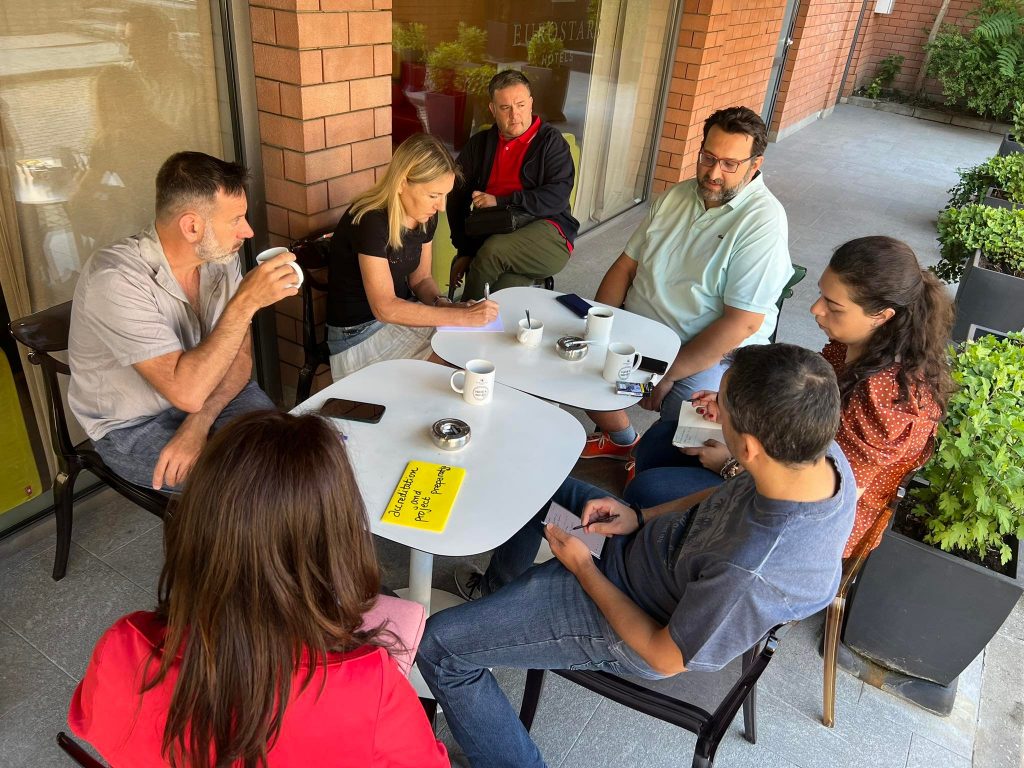
The last day of the QAS international training included a study visit to the National High School in Finance and Business (NHSFB) and an afternoon wrap up session.
The QAS training created great prerequisites for boosting participants’ knowledge and capacity to prepare and implement VET mobility projects as well as for networking and exchange of good practices and know-how between participating educational organisations from the partner countries. Therefore, the QAS training ended with many ideas for further international cooperation between participants and the organisations they were representing as well as many creative plans for common project initiatives
